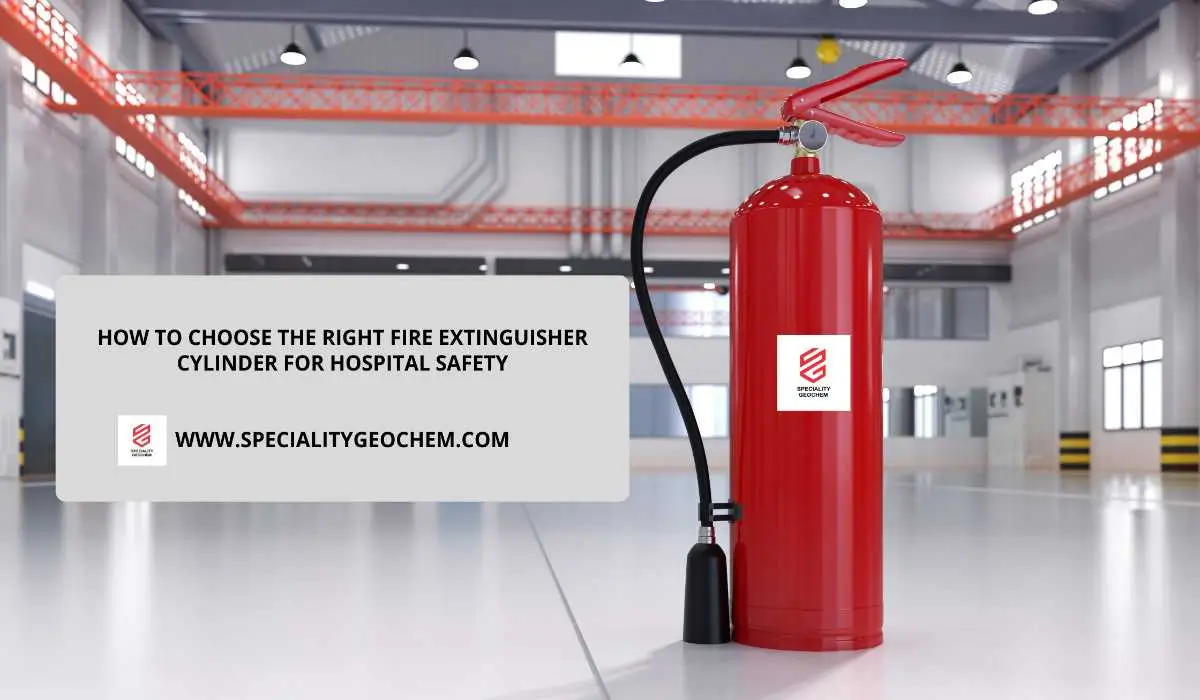Hospitals are places where lives are protected and health is restored, yet they are also highly vulnerable to fire risks. With constant use of electrical devices, oxygen cylinders, laboratories, and flammable chemicals, hospital fire safety demands extra attention. Choosing the right fire extinguisher cylinder for hospital environments is not just a compliance requirement—it is a moral responsibility to safeguard patients, staff, and visitors.
In this blog, we will explore why hospitals need tailored fire protection, what factors to consider when selecting extinguishers, and how the right Fire Extinguisher Cylinder for Hospital settings can make the difference between minor incidents and major tragedies.
Understanding Fire Risks in Hospitals
Hospitals are complex facilities with multiple fire hazards. Some common risks include:
- Oxygen-rich environment: Oxygen accelerates the spread of fire, and hospitals store it in large quantities.
- Electrical overloads: Life-saving equipment runs 24/7, creating the risk of short circuits.
- Flammable substances: Chemicals in labs and pharmacies add to fire hazards.
- Patient immobility: Many patients cannot evacuate quickly, making quick suppression critical.
Because of these risks, ordinary safety measures are not enough. Hospitals require a systematic plan that includes installing the right extinguishers, training staff, and regular fire drills.
Why Specialized Fire Extinguishers Are Essential
A hospital cannot rely on a single type of extinguisher. Fires in different areas may involve electrical equipment, flammable liquids, or even kitchen grease. Each fire type requires a specific extinguisher. For instance, water-based extinguishers should never be used on electrical fires, while foam extinguishers may not be effective on chemical hazards.
This makes it vital to choose the appropriate Fire Extinguisher Cylinder for Hospital safety plans, ensuring coverage for every department.
Key Factors to Consider When Choosing Fire Extinguishers
When selecting fire extinguishers for hospitals, decision-makers must focus on several factors:
1. Types of Fires
- Class A (ordinary combustibles): Paper, cloth, wood – often found in hospital records, bedsheets, and furniture.
- Class B (flammable liquids): Chemicals, cleaning agents, laboratory fuels.
- Class C (electrical equipment): ICU monitors, ventilators, MRI machines.
- Class K (kitchen fires): Cooking oils and fats in hospital cafeterias.
Each class demands a different extinguisher. CO₂ extinguishers, for example, are best for electrical fires, while wet chemical extinguishers handle kitchen fires effectively.
2. Cylinder Capacity
The size of the extinguisher matters. Small extinguishers are easier for staff to use quickly, while larger cylinders are necessary for high-risk zones such as ICUs or storage rooms. Balancing accessibility and coverage ensures quick response in emergencies.
3. Hospital Layout
Different zones in a hospital require specific safety planning:
- ICUs and Operation Theatres: CO₂ extinguishers for electrical equipment.
- Pharmacies and Labs: Foam or dry chemical extinguishers for chemical hazards.
- Corridors and Wards: Multipurpose ABC extinguishers for general fire safety.
By mapping hazards to extinguisher placement, hospitals create effective protection zones.
4. Compliance with Regulations
Hospitals must adhere to fire safety norms set by local fire departments and accreditation bodies. Installing the right Fire Extinguisher Cylinder for Hospital use ensures compliance and reduces legal risks during inspections.
5. Ease of Use
Not all staff members are trained firefighters. Extinguishers must be easy to operate with clear instructions, ensuring even non-technical staff can respond effectively during emergencies.
Training and Awareness: The Human Factor
Even the best extinguishers are useless without proper training. Hospitals should conduct regular workshops where nurses, ward staff, and security personnel practice using extinguishers. Fire drills not only boost confidence but also minimize panic when real incidents occur.
For example, staff should know which extinguishers are safe for electrical fires, and when to evacuate instead of fighting flames.
Placement and Accessibility
Strategic placement of extinguishers saves lives. Hospitals should ensure:
- Cylinders are mounted in visible and accessible areas.
- Corridors, ICUs, and staircases have extinguishers within reach.
- Extinguishers are checked regularly for pressure levels and expiry dates.
Routine inspections help maintain readiness and prevent equipment failure.
The Role of Technology in Fire Safety
Modern hospitals are integrating advanced fire safety systems. Some facilities now use automatic suppression systems, fire extinguisher balls, and sensor-based alarms. Still, manual extinguishers remain essential for immediate control. Combining technology with traditional cylinders provides a multi-layered approach to safety.
Case Studies: Learning from Real Incidents
History shows how fire safety can make a difference:
- In some hospitals, fires spread quickly due to lack of CO₂ extinguishers in ICUs, resulting in tragic losses.
- Conversely, facilities with well-placed extinguishers and trained staff successfully controlled fires before they spread.
These examples underline why selecting the right Fire Extinguisher Cylinder for Hospital preparedness is not optional—it is life-saving.
Maintenance and Inspections
Choosing the right extinguisher is only the first step. Hospitals must also:
- Inspect cylinders monthly.
- Replace expired extinguishers promptly.
- Ensure seals and pins are intact.
- Train staff to recognize when equipment is faulty.
Regular maintenance ensures that extinguishers are fully functional during emergencies.
Conclusion: Making the Right Choice
At Speciality Geochem, we understand that hospitals cannot compromise when it comes to fire safety. Our Fire Extinguisher Cylinders for Hospital Safety are designed with precision, reliability, and compliance at the core, ensuring maximum protection in high-risk medical environments. Beyond supplying equipment, we emphasize creating a culture of preparedness—where advanced fire safety solutions are paired with awareness and training.
By choosing Speciality Geochem, hospitals gain not just a product but a trusted safety partner committed to protecting lives, assets, and trust. With our expertise in manufacturing and delivering world-class fire fighting equipment, we continue to strengthen healthcare facilities across India, ensuring that hospitals remain true sanctuaries of healing—safe, secure, and prepared for every emergency.

